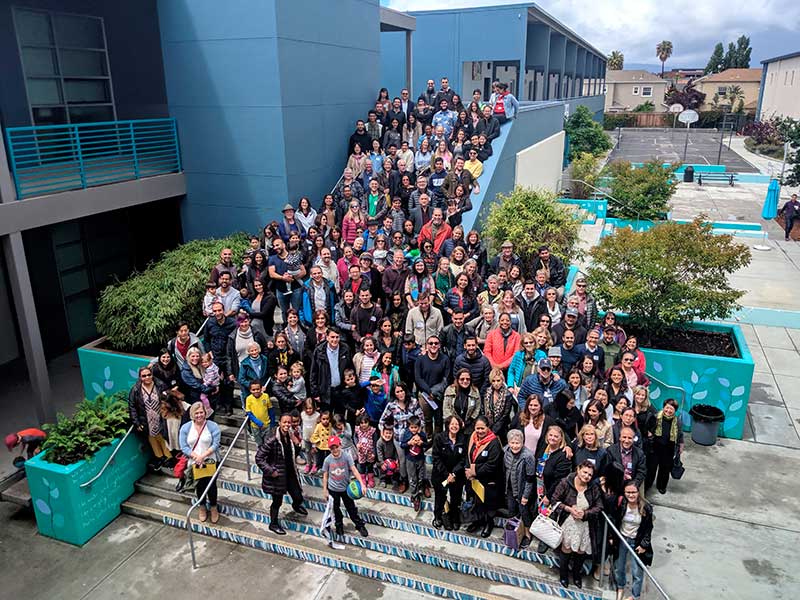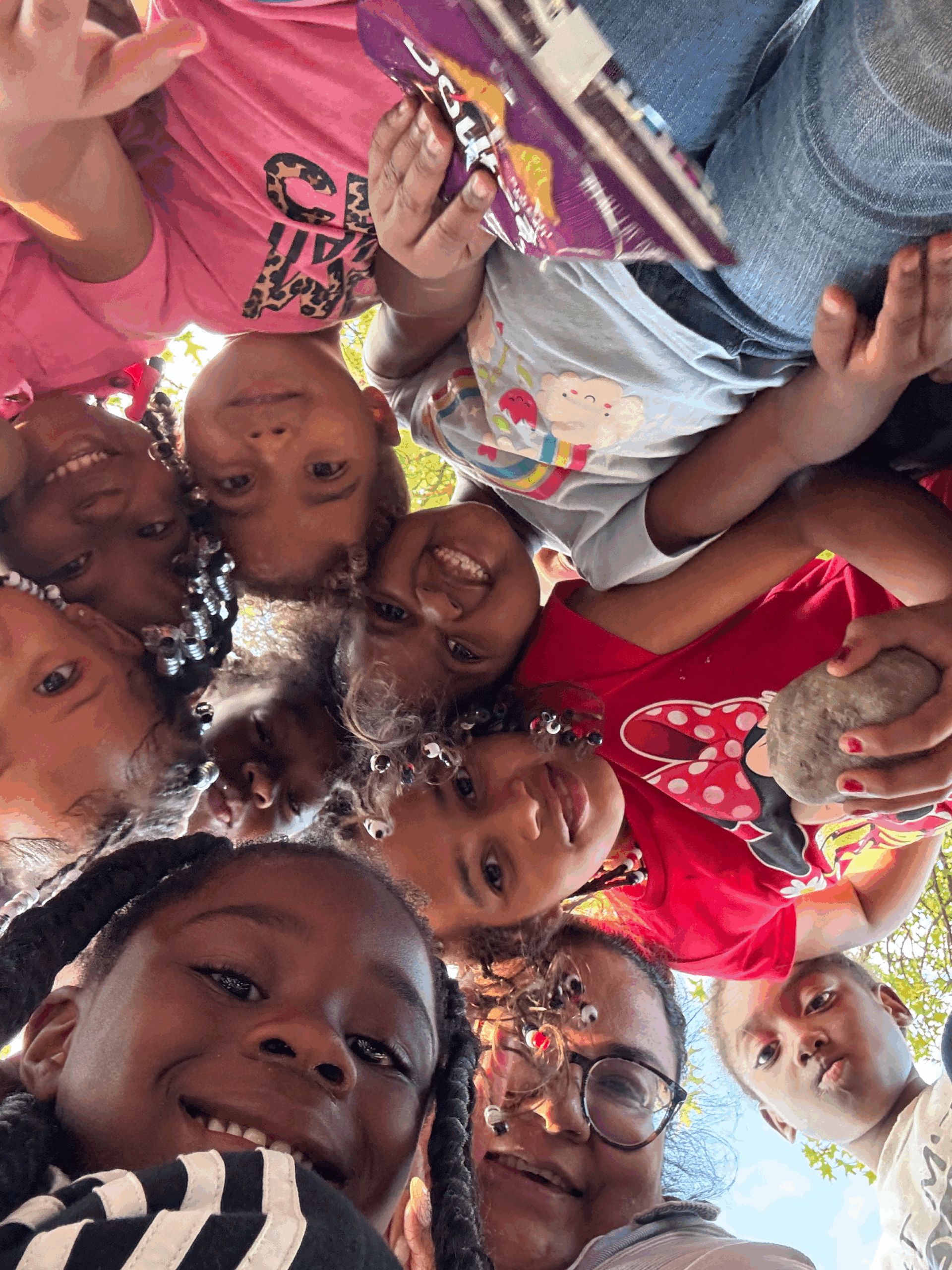
Serving on a campus: a neighborhood with a difference
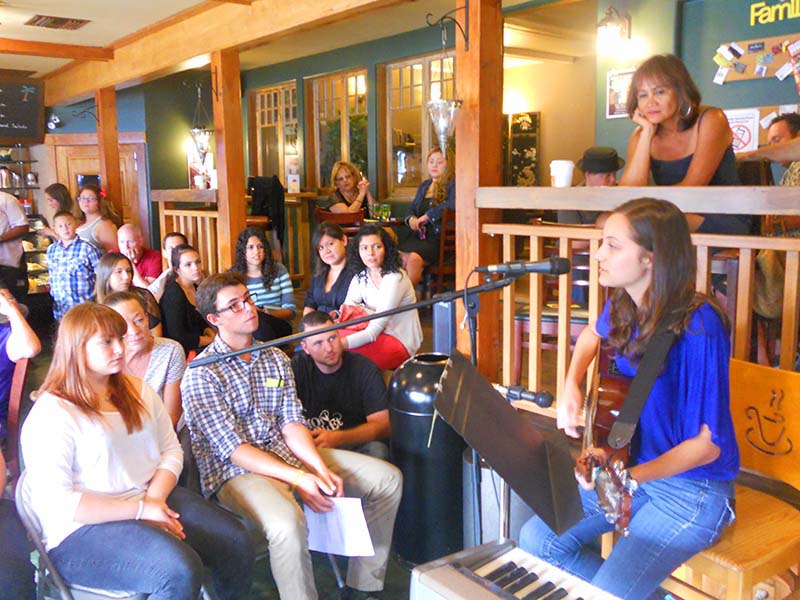
As Baha’is and friends strive in neighborhoods across the globe to build community, the college campus stands out as a space full of people searching for identity and ways to serve humanity.
“College campuses are neighborhoods, college students are a receptive population, and Baha’i students can and should be encouraged to be creative in reaching out to them,” says Ray Zimmerman of Orange, California, who teaches at Saddleback College in Mission Viejo.
Two young Baha’is who initiated community-building activities on campus while attending Chapman University in Orange from 2012 to 2016 agree with that sentiment — while noting campuses differ in at least one way from other neighborhoods.
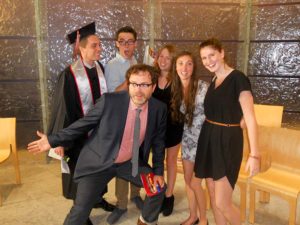
Julianne O’Connor and Esme Aston say they found their college years full of opportunities to converse with fellow students on spiritual topics and offer them avenues for contributing to the betterment of society.
College is a time young people are “looking how to shape their identity,” reflects Aston. “In some way, they think what they do through their work can contribute to society.
“They are already in that mentality that ‘I’m here to be open-minded, I’m here to learn, I’m here to contribute to the community.’ So I think in that way there’s a lot of strength.”
The two friends entered Chapman after having served side by side to build community in a Beaverton, Oregon, neighborhood, and they immediately found similarities.
“It’s the same process, right?” notes Aston. “We had a group of friends. We talked to these friends about this lofty vision. We started [a study circle designed to train individuals for community building]. And then that translated into service.”
One primary arena of service was a neighborhood in nearby Santa Ana where Aston and O’Connor moved at the start of their sophomore year. They were part of starting or sustaining junior youth groups, children’s classes and devotional gatherings.
That’s where Aston and O’Connor discovered a difference. In neighborhoods such as in Santa Ana, they say, residents can identify its needs and readily see the value of junior youth groups and other community-building activities. On a campus the dynamic is different. Students want to contribute to society but their desire is often unfocused.
Looking back, they also wonder whether working with residents should have been the team’s first option for service in Santa Ana, rather than organizing the activities themselves. It’s best if people indigenous to the neighborhood itself are the ones who are trained to initiate those devotional and educational activities, says Aston.
Eventually that happened, though, she says. And those activities “have continued and expanded” in the years since the two friends graduated, says Zimmerman, who serves on the Spiritual Assembly — the local Baha’i governing council — of Orange and has aided the efforts of Baha’i students at Chapman, Saddleback and the University of California, Irvine.
In the end Aston and O’Connor say the most important thing is to align the efforts of Baha’is and friends on a campus with what is happening elsewhere in the community.
“What was happening [at Chapman] wasn’t isolated,” says Aston. “It was a chunk of the bigger movement that was happening. It’s important to keep it connected to the rest of the process.”
Different ways of making connections
At Chapman, the study circle Aston, O’Connor and another student organized was made up of students they invited through conversations — and one singularly successful event.
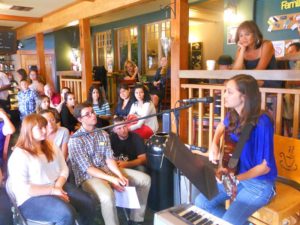
That was a SoulPancake night featuring open-mic performances; discussion of “life’s big issues” of the kind actor Rainn Wilson and others founded SoulPancake to foster; and, yes, pancakes.
“I think a lot of people are going to want to come to an event that sounds fun but is also an opportunity to make connections,” reflects O’Connor. “It’s very attractive to college students. I mean, free food. What more do you need?”
Aston and O’Connor say there are many ways Baha’is and friends can help serve the needs of college students.
“People might be feeling lonely around the holidays, so maybe we do some kind of activity to make the people feel less lonely,” notes Aston. “Or you can do something for people who are really stressed out.”
But it’s in the interfaith arena that the Baha’i Faith has made its biggest impact at Chapman.
“Participation of Baha’i students on the Student Multifaith Council led at different times to Rainn Wilson, Andy Grammer and Justin Baldoni” — three Baha’is prominent in entertainment and public service — “speaking at Chapman’s religious baccalaureate commencement ceremony,” recalls Zimmerman.
“The dean of the Fish Interfaith Center is now asking for Andy and his wife, Aijia, to return in 2020 as baccalaureate speakers and performers.”
Gail Stearns, the dean, says the Baha’i community has been essential to the center’s “commitment to providing a home for all religions and fostering interfaith understanding. Our Baha’i friends, perhaps more than many others, fundamentally understand the centrality of spirituality and interfaith engagement, and we deeply cherish our partnership.”
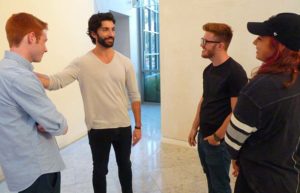
She notes, “Chapman’s Interfaith Baccalaureate Service has grown from a fledgling 60 in attendance eight years ago to a packed house thanks to the incomparable Rainn Wilson, Andy Grammer, and Justin Baldoni as keynote guests, bringing graduates their inspiring stories of faith.”
Aston, through a job she held on campus, was “central in organizing ‘speed faithing’” — a way, akin to speed dating, of introducing students quickly to a number of faiths as they go around to tables staffed by representatives of those faiths — “and a hunger banquet to draw attention to poverty and food insecurity in Orange County,” says Zimmerman. He also serves on the university Board of Trustees’ Committee on Church and Interfaith Relations.
Current students reflect on Faith’s impact
Last year a student “taught herself about the Faith online and mentioned her recent enrollment in the Baha’i Faith in her bio for commencement as she received three awards for peacemaking and interfaith work,” he says.
That student, Brittany Souza, has since moved to Washington, DC, and is participating in a study circle with a group of women in her new neighborhood, says Zimmerman.
Looking back, she sees “Baha’u’llah’s influence … working through Chapman and the interfaith community. Without it I would have never found the Baha’i community.”
And she has helped introduce the Baha’i teachings and community to others — in part through interfaith activities, says Zimmerman.
“This former student has reached back to her friends in Orange County, and we now have three Chapman University students enthusiastically investigating the Faith and attending devotional programs and firesides,” he says.
One of them, Caroline Kutschbach, says she “first heard about the Baha’i community when I became president of the Religious Honors Society. My plan was to provide a way for students to explore faiths through an open academic setting.”
She recalls, “I myself wanted to explore religions without fear of conversion or rejection. Upon learning about the faith of the Baha’i people I felt that it really resonated with what I believed and matched with my passion for all religions.
“I love the Baha’i community because they are open to all people, as well as being involved in the interfaith community,” says Kutschbach. “They not only welcome other faiths into their environment, they encourage education and incorporate other religions in Baha’i devotions.”
Another student, Adina Corke, recalls being introduced to the Baha’i Faith through a Soul Pancake video shown to the interfaith council.
“The love expressed by the Baha’i in the video … attracted me to investigate the Faith,” she says. “Since then, my eyes have been opened to the involvement of the Baha’is on campus and in the community.”
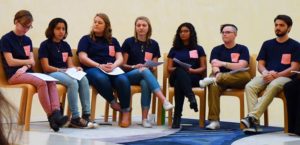
An interfaith panel also made a deep impression on Corke. One of the panelists was Mona Asadi, a Baha’i student from Las Vegas, who is active in interfaith activities on campus and sings at Baha’i events in the community.
“Learning about the Baha’i [Faith] came at a time when I needed to believe there was good in the world, people that loved each other and wanted everyone to live their best lives,” she says.
“The Baha’i Faith satisfied that need I had to find goodness more so than any other faith I have been exposed to so far in my brief 22 years.“
Service continues from college to career
O’Connor now serves with the Peace Corps in the Dominican Republic and Aston works for the American Red Cross in Washington, DC.
Each has duties that are youth-centered. “We both joke about our path of service literally becoming our careers,” says Aston, who still animates a junior youth group, in DC’s Edgewood neighborhood.


